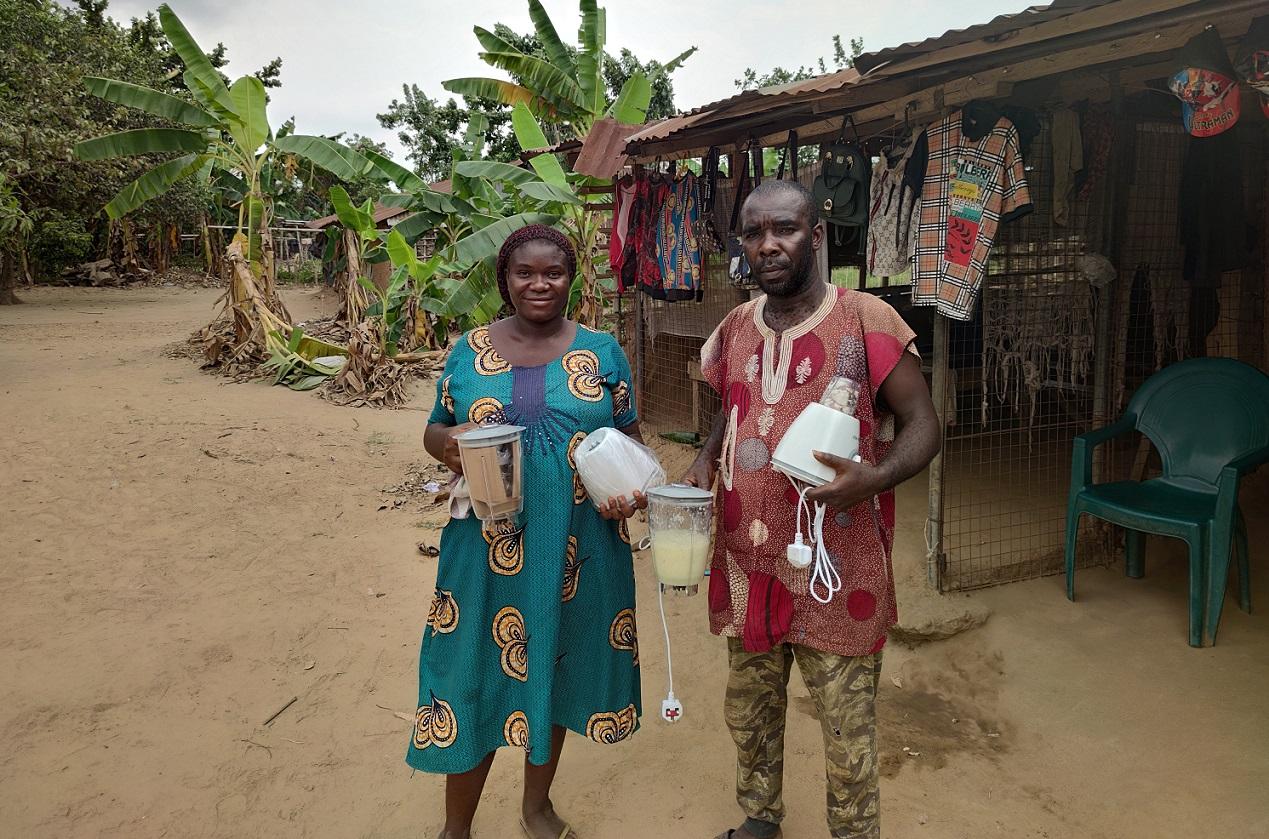The big picture is a resounding acknowledgement that Inclusive Business has entered the boardroom, as multi-national corporations are searching for ways to make their businesses more inclusive and sustainable. The Inclusive Business Playbook is one tool that can be used to help business advance inclusion of low-income and marginalized groups.
Another key element is a cohesive and practical definition of the features of Inclusive Business. The Inclusive Business Features were developed as a concise guide to help policymakers, investors and entrepreneurs scale their impact by clearly defining what it means to be an Inclusive Business.
The ASEAN region has lately taken several steps forward in the development of policy guidelines and strategies to promote IB in the region, as highlighted at the recent ASEAN IB Summit.
Strong interest in IB coaching and new developments in accreditation for inclusive businesses are two growing trends helping to transform policy into action.
One of the key areas to watch moving ahead into 2022 is the nexus between Inclusive Business and environmental sustainability and climate action.
Technology advances and inclusive innovation policies also have the power to increase the reach and scale of Inclusive Business.

Inclusive Business is advancing around the world.
Growing inequality due to the Covid-19 pandemic has underscored the necessity to develop and expand new business models that are sustainable and inclusive. Inclusive Business is no longer on the sidelines; it has come front and center in the boardroom. 79 per cent of CEOs say Covid-19 has highlighted the need to transition to more sustainable business models, according to a survey by Accenture and the United Nations Global Compact. Governments are also making headway in promoting Inclusive Business and developing IB strategies. Several advances have been made in the ASEAN region, culminating in the recent ASEAN IB Summit in Brunei. In this issue of CLUED-iN, the last of 2021, we take a look at new developments and advances in Inclusive Business, including new tools, innovations and practical approaches turning policy into action. We also examine the definition and features of Inclusive Business and the nexus of inclusive business models and environmental sustainability.

New tools and definitions have emerged.
The big picture is a resounding acknowledgement that Inclusive Business has entered the boardroom, as multi-national corporations are searching for ways to make their businesses more inclusive. This issue of CLUED-iN features a blog by Gillian Hynde and Jessie Coates of EY, which introduces the recently launched Inclusive Business Playbook developed with Acumen and highlights innovative examples of inclusive business models while honing in on seven key questions companies should ask.
Equitable governance and supply chain management are key elements of inclusive businesses. As the authors point out, “The supply chain is where companies are most likely to encounter exploitation of low-income and marginalized workers. Azahar Coffee is a Colombian social enterprise that upends this imbalanced relationship by rewarding smallholder farmers for growing the highest-quality coffee through a fixed pricing structure. Azahar’s approach — defined by radical transparency — makes coffee farming a feasible way to make a living, transforming a historically exploitative industry.”

Companies are most likely to encounter marginalized workers in their value chains.
The Inclusive Business Playbook is one tool that can be used to help businesses become more inclusive. Another key element is a cohesive and practical definition of the features of Inclusive Business. The Inclusive Business Features were developed as a concise guide to help policymakers, investors and entrepreneurs scale their impact by clearly defining what it means to be an Inclusive Business. Kathy Mignano of the International Finance Corporation (IFC), who helped develop the Features tells us, “Companies and investors are increasingly incorporating inclusive practices to pursue growth opportunities while boosting development impact. Inclusion, however, can have different meanings for different stakeholders. That’s why a consensus about the basic features of inclusive business is key. It creates a common understanding, so all stakeholders can speak the same language.”

Many stakeholders collaborated on the Inclusive Business Features.
The ASEAN region has lately taken several steps forward in the development of policy guidelines and strategies to support Inclusive Business. In September, the 4th ASEAN IB Summit was held in Brunei, with a focus on how new policy guidelines can be practically implemented. In her interview with CLUED-iN, Marta Pérez Cusó of United Nations ESCAP reflects on the summit and the next steps required: “I really like that we are now starting to look more into the details of how we implement the Guidelines for Promoting Inclusive Business in ASEAN. There were lots of insights into how we coach businesses to develop inclusive business models, and how accreditation systems can encourage businesses that want to go beyond the bottom line.”
Cambodia is the third country in ASEAN to develop a comprehensive strategic framework for promoting inclusive business. The Cambodia Women Entrepreneurs Association is supporting the development of IB in the country and helping women-led businesses achieve recognition and accreditation. In this issue, we feature one of the first Cambodian companies to receive Inclusive Business accreditation, Lyly Food. The company buys fruit and vegetables at a fair price from farmers and sells and processes them locally. Ing Chhiv Ly, Lyly Food’s CEO, told us that accreditation has opened doors for her company: “The main benefit is visibility. We are now much more well known in the government sector. We are being recognized as a company, so we can build a stronger reputation, and people acknowledge that we care about the society and we care about our people and our planet.”
Growing interest in IB coaching and new developments in accreditation for inclusive businesses are two growing trends. In this issue, we delve into IB and base of the pyramid coaching by featuring the perspectives of two businesses that were beneficiaries of coaching: Brimore, an inclusive retail platform in Egypt, and Okra Solar, a distributed power generation business operating in remote areas of Southeast Asia. “Whilst we’re good at building technology, there was a gap in understanding cultural norms – and that’s why we sought advice from BOPINC. They helped us to develop a framework to effectively engage with people from vastly different cultures,” said Callum Yap.

Okra Solar provides clean energy to off-grid households.
One of the key areas to watch moving ahead into 2022 is the nexus between Inclusive Business and environmental sustainability. In this issue of CLUED-iN, George Schoneveld makes the case for reframing inclusive business models (IBMs) as sustainable business models (SBMs). “Through the relationship IBs build with the base of the pyramid, they are supremely positioned to disseminate climate smart technologies, encourage uptake of agroecological production practices and incentivize compliance with sustainability standards. This potentially vital role remains under-explored, requiring more concerted efforts from both the IB and environment-centric communities to align their strategies and interventions,” he explains. He also adds that accreditation can help mitigate “greenwashing”: “The IB accreditation systems that are beginning to emerge in some ASEAN countries, for example, could certainly help independently verify and validate a business’ sustainability.”
Inclusive Business can disseminate climate-smart technologies.
Technology and innovation also have the power to increase the reach and scale of Inclusive Business. For example, advances in distributed solar technology have created new opportunities for energy access in remote areas, bringing increasing opportunities and access to markets. The new ESCAP publication Frontiers of Inclusive Innovation: Formulating technology and innovation policies that leave no one behind also examines how governments can support inclusive innovation, grassroots innovation and the development of inclusive development policies.
Inclusive Business is experiencing wider international recognition as governments, investors and CEOs alike realize the need to build forward better and embrace more inclusive, sustainable business practices. Advances in IB are furthering policy support to businesses working with low income groups, while other new tools are providing a starting point for established companies to become more inclusive. At the same time, coalitions are developing a unified vision and definition of Inclusive Business, and new technologies and government support can further scale the impact of IB on those living at the base of the pyramid. These trends and advances provide a glimpse into the future of Inclusive Business, with the anticipation that its transformative impact will be further accelerated in the year to come.

Technology and innovation also have the power to increase the reach and scale of Inclusive Business.
- INCLUSIVE BUSINESS IN CAMBODIA - Initial Results of a Landscape Study and Proposed Inclusive Business Enabling Environment for Cambodia (IBeeC) Strategy
- Frontiers of Inclusive Innovation publication, UNESCAP
- Take-aways from the fourth ASEAN Inclusive Business Summit
- Defining the Inclusive Business Features
- How to move from rhetoric to action on inclusive business, EY
Pictures:
African couple holding electric appliances: © Okra Solar
All other images: Unsplash, Pixabay



